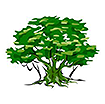ECTION_MENU}
History
Curriculum Intent
At Reydon, we study History each term with History informing the ‘Homework Menu’ that is offered to all children. We aim to offer a high-quality history education that will help pupils gain a coherent knowledge and understanding of Britain’s past and that of the wider world. It should inspire pupils’ curiosity to know more about the past.
Learning equips pupils to ask perceptive questions, think critically, weigh evidence, sift arguments, and develop perspective and judgement. History helps pupils to understand the complexity of people’s lives, the process of change, the diversity of societies and relationships between different groups, as well as their own identity and the challenges of their time.
History units are carefully planned to enable children to develop their historical knowledge and skills within a carefully sequenced and coherent curriculum, through the following key concepts.
- Chronological understanding
- Range and depth of Historical knowledge
- Historical interpretation
- Historical enquiry
The national curriculum for history aims to ensure that all pupils:
- know and understand the history of these islands as a coherent, chronological narrative, from the earliest times to the present day: how people’s lives have shaped this nation and how Britain has influenced and been influenced by the wider world
- know and understand significant aspects of the history of the wider world: the nature of ancient civilisations; the expansion and dissolution of empires; characteristic features of past non-European societies; achievements and follies of mankind
- gain and deploy a historically grounded understanding of abstract terms such as ‘empire’, ‘civilisation’, ‘parliament’ and ‘peasantry’
- understand historical concepts such as continuity and change, cause and consequence, similarity, difference and significance, and use them to make connections, draw contrasts, analyse trends, frame historically-valid questions and create their own structured accounts, including written narratives and analyses
- understand the methods of historical enquiry, including how evidence is used rigorously to make historical claims, and discern how and why contrasting arguments and interpretations of the past have been constructed
- gain historical perspective by placing their growing knowledge into different contexts, understanding the connections between local, regional, national and international history; between cultural, economic, military, political, religious and social history; and between short- and long-term timescales.
Curriculum Implementation
Our History curriculum aims to excite the children and allow them to develop their own skills as historians. As part of a topic lead programme it allows opportunities for cross curricular links to be made to ensure the children have many occasions where by they can apply their knowledge and understanding.
Key stage 1
Pupils develop an awareness of the past, using common words and phrases relating to the passing of time. They know where the people and events they study fit within a chronological framework and identify similarities and differences between ways of life in different periods. They use a wide vocabulary of everyday historical terms. They ask and answer questions, choosing and using parts of stories and other sources to show that they know and understand key features of events. They understand some of the ways in which we find out about the past and identify different ways in which it is represented.
Pupils are taught about:
- Changes within living memory.
- Events beyond living memory that are significant nationally or globally [for example, the Great Fire of London, the first aeroplane flight or events commemorated through festivals or anniversaries]
- The lives of significant individuals in the past who have contributed to national and international achievements. [for example, Christopher Columbus and Neil Armstrong, and Florence Nightingale and Edith Cavell
- Significant historical events, people and places in their own locality.
Key stage 2
Pupils continue to develop a chronologically secure knowledge and understanding of British, local and world history, establishing clear narratives within and across the periods they study. They note connections, contrasts and trends over time and develop the appropriate use of historical terms. They regularly address and sometimes devise historically valid questions about change, cause, similarity and difference, and significance. They construct informed responses that involve thoughtful selection and organisation of relevant historical information. They should understand how our knowledge of the past is constructed from a range of sources.
Pupils are taught about:
- Changes in Britain from the Stone Age to the Iron Age Examples
- The Roman Empire and its impact on Britain.
- Britain’s settlement by Anglo-Saxons and Scots
- The Viking and Anglo-Saxon struggle for the Kingdom of England to the time of Edward the Confessor
- A local history study
- A study of an aspect or theme in British history that extends pupils’ chronological knowledge beyond 1066
- The achievements of the earliest civilizations – an overview of where and when the first civilizations appeared and a depth study of one of the following: Ancient Sumer; The Indus Valley; Ancient Egypt; The Shang Dynasty of Ancient China
- Ancient Greece – a study of Greek life and achievements and their influence on the western world
- A non-European society that provides contrasts with British history – one study chosen from: early Islamic civilization, including a study of Baghdad c. AD 900; Mayan civilization c. AD 900; Benin (West Africa) c. AD 900-1300.
Curriculum Impact
By the end of each key stage, pupils are expected to know, apply and understand the matters, skills and processes specified in the relevant programme of study. At Reydon we use summative assessment to determine children’s understanding and inform teachers planning. This is reviewed on a termly basis by the subject leader who also carries out regular learning walks, book scrutinies and lesson observations.
Our Learning journey pathway in History at Reydon Primary School.
History Learning Journey
history learning journey 2022 2023.pdf

